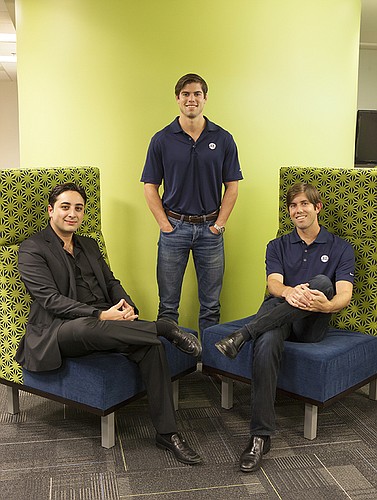- December 13, 2025
-
-
Loading

Loading

The difference between success and failure for a retail store or restaurant can come down to one factor: location.
That makes site selection a valuable science. It includes reams of paper filled with so much data, it's impossible for the human mind to grasp it all.
But the executives behind a Tampa technology startup believe they've found a way to bring that data together, and pair it with real estate services. The firm is SiteZeus. Keenan and Hannibal Baldwin, brothers behind private equity company Baldwin Beach Capital, founded SiteZeus with programmer Azad Ratzki.